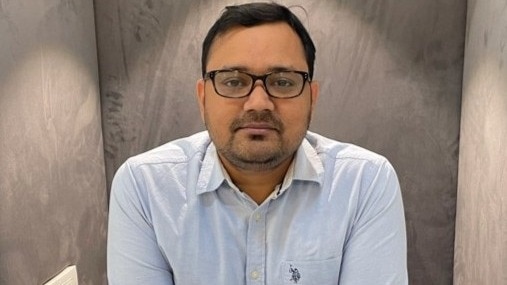He was the “Machiavelli of Libor” whose scheme to manipulate the benchmark interest rate landed him one of the UK’s longest prison sentences for financial fraud — and made him a poster child for bad bankers in the wake of the financial crisis.
But almost exactly a decade after he was found guilty on eight counts of conspiracy to defraud, Tom Hayes’ conviction was overturned this week in a historic decision by the UK’s highest court. He had spent five-and-a-half years in jail.
“It’s the day I dreamt about while I was lying in a prison cell,” said the former UBS and Citigroup trader, after five Supreme Court judges found unanimously on Wednesday that his conviction was unsafe.
The reversal has brought scrutiny not only of Hayes’ prosecution by the Serious Fraud Office, but also of directions the trial judge, Mr Justice Cooke, gave to the jury at Southwark Crown Court that sealed the trader’s fate.

Hayes’ unsafe conviction — and the length of time taken to overturn it — has also heightened broader worries about the administration of criminal justice in England and Wales. It prompted particular concerns about plans the government is considering to roll back the use of jury trials in complex fraud cases.
“The case highlights numerous problems with our criminal justice system, all of which I believe meet the criteria for a public inquiry,” said Hayes’ lawyer Karen Todner.
Carlo Palombo, a former Barclays trader who received a four-year sentence for manipulating Euribor, another benchmark rate, also had his conviction quashed. The pair were among nine people successfully prosecuted by the SFO for rigging benchmark rates. The Supreme Court’s decision leaves the door open to further appeals by other convicted benchmark-riggers, according to Palombo’s lawyer, Ben Rose.
Portrayed by the SFO in his trial as a greedy schemer, Hayes was accused of leading a conspiracy among traders and brokers to rig Libor with the sole purpose of boosting his own trading book.
He became the first person in the world to be convicted by a jury of manipulating the Libor rate after global banks paid fines worth billions of dollars to regulators around the world. The Libor scandal erupted in the years immediately following the financial crisis, when public antipathy for bankers was at its height.

His conviction at the age of 35 for manipulating yen Libor was a much-needed win for the SFO, which staked its reputation on securing a successful prosecution — absent a bank boss going to jail. The agency received special ringfenced funding from the Treasury to pursue its investigation.
But throughout his ordeal, Hayes maintained his innocence, arguing he had been made a scapegoat.
“It always astounded me that the narrative that got pushed was that people lost their houses because of us,” he said on Wednesday. “We had nothing to do with the financial crisis. Like, zero.”
The brokers with whom he was accused of conspiring were found not guilty by a separate jury. Hayes was convicted even though the expert witness called by the SFO was found to have texted traders as he was giving evidence during the Libor trials, asking basic questions about the rate-setting process, apparently undermining the prosecution case.
Hayes took his case to the Criminal Cases Review Commission, the body that reviews convictions and sentences, back in 2017. The CCRC is already under fire over other miscarriages of justice including the case of Andrew Malkinson, who spent 17 years in prison for rape before his conviction was quashed in 2023.

It took until July 2023 for the CCRC to refer Hayes’ case to the Court of Appeal. The commission decided to do so after a US court in January 2022 overturned the convictions of other traders in similar circumstances, and led American prosecutors to drop charges against Hayes.
Todner said on Wednesday: “The CCRC took so long — over six years — to refer the case back to the Court of Appeal, which was all far too slow.”
Even then, the Court of Appeal last year upheld Hayes’ conviction. It found the US ruling did not “cast doubt on the correctness of the previous decisions” of the English courts. Hayes described the Court of Appeal’s ruling at the time as a “shock”.
The CCRC said in a statement that it had been required to review “extensive submissions across a range of complex issues and several thousand pages of information”.
Todner said problems with the case took hold in its early stages. She said it highlighted problems with the legal regime in England that allows bodies such as the SFO to prosecute independently of the Crown Prosecution Service.
“The dual role of the SFO as investigator and prosecutor creates a substantial conflict of interest which creates miscarriages of justice,” she said.
The SFO — whose reputation has been hit by failures to prosecute individuals in other big-ticket cases, from Tesco’s £250mn accounting scandal to Barclays’ emergency cash call — is an idiosyncratic agency set up in 1987 in the wake of a series of City scandals. It reports to the Attorney General’s Office and has the ability to both investigate and prosecute.

Despite Hayes’ apparent vindication, the Supreme Court’s judgment did not amount to an exoneration. The Supreme Court judges found there was “ample evidence” during his trial that could have formed a basis for conviction.
The SFO nevertheless said it would not seek a retrial. “We have considered this judgment and the full circumstances carefully and determined it would not be in the public interest for us to seek a retrial,” it said.
The Supreme Court’s decision turned on whether the jury should have determined a central question in the case, or whether it should have been taken as a given as a matter of law.
Cooke had told jurors in 2015 that a Libor rate was inherently not “genuine or honest” if it had been “influenced by trading advantage”.
The Supreme Court found that this question should have been up to the jury to decide. The directions Cooke gave were “inaccurate and unfair”, ultimately depriving Hayes of a fair trial.
Yet under proposals being considered by the government, juries could have no role at all in cases such as Hayes’.
A review by retired judge Sir Brian Leveson recommended this month that jury trials be rolled back for complex fraud cases, as part of a sweeping package of reforms to address lengthy court backlogs.
“We are going down a very slippery slope if we start getting rid of juries in my mind,” Hayes said. “I really hope that parliament does not go down that route” as recommended by Leveson.
“I would have stood no chance in front of Mr Justice Jeremy Cooke. The jury is the last defensive barrier” for defendants, he said.
Hayes, now 45, said he was doing his best to suppress the rage he sometimes felt, quoting Nelson Mandela: “Resentment is like drinking poison and then hoping it will kill your enemies”.
“I battle every day with anger, to try to stop those emotions welling up inside me,” he said.
Yet, as Todner made clear, he has plenty to be furious about. “Tom missed out on formative years with his son, time with his family and the loss of his career and his home. Times he will never get back.”
Libor and Euribor convictions in the UK
October 2014
Peter Johnson, Barclays (pleaded guilty)
August 2015
Tom Hayes, UBS/ Citigroup
July 2016
Jay Merchant, Jonathan Mathew and Alex Pabon, Barclays
March 2018
Christian Bittar, Deutsche Bank (pleaded guilty)
July 2018
Philippe Moryoussef, Barclays (convicted in absence)
March 2019
Carlo Palombo, Barclays
March 2019
Colin Bermingham, Barclays






